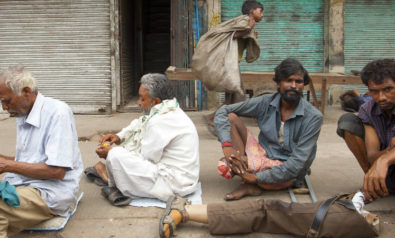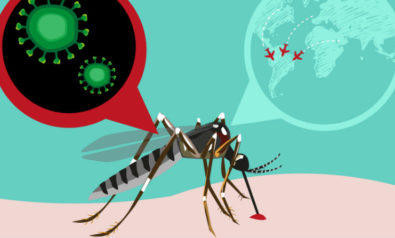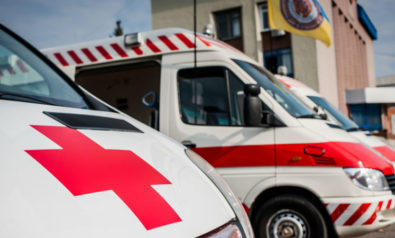An independent project is finding individual solutions to improve the lives of patients in rural India.
Many people are aware of the rise of diabetes globally, as well as its increasing burden in terms of health complications and fatalities in South Asian countries. Hence, public health education plays a critical role in the prevention and management of the disease worldwide. However, the actions of the community-based programs that aim to alleviate these problems do not always get the attention they deserve in the news and on social media.
This is a story of a low-cost screening and education program in Gujarat, India, that uses health workers (sevaks) to identify people at-risk of diabetes among other diseases, and provide evidence-based education and routine check-ups to work toward alleviating the rural health care disparity in India. My involvement with the Sevak Project over the last several years has included both observation and service work in villages across Gujarat, with the aim to see how these low-cost strategies are improving the health and livelihood of many individuals.
The project is in its sixth year of operation and currently provides home-based screenings, lifestyle education and referrals for the rural citizens of India who have historically lacked access to equitable health care and treatment.
A Long Drive
The story begins on the journey from the city of Vadodara to the Botad District of northwestern Gujarat. After driving on a long dirt road for about three hours, our car abruptly came to a stop. The driver let us know that he could not move any further, and we would have to walk the rest of the way.
As we stepped out, a young man named Mahavir greeted us. He was short in stature and had a dark complexion, which clashed with his bright white shirt. His moustache aged his face, but he was only in his 20s. He politely shook our hands and instructed us to follow him about a kilometer into his village. Mahavir directed us to a small hut where he introduced us to the family. They graciously brought out chairs that were clearly only used for important occasions.
Though their poverty was evident, they offered us chai (tea) and water. Soon after, a man with a prosthetic leg and no arms limped into the room. He had a wide smiling face and dark curly hair. His shoulders were thick with bandages and his prosthetic was stained with dirt. He was quickly helped by his brother into a chair and we introduced ourselves.
Throughout the last six years of the Sevak Project, people like Mahavir have been managing the local health care and sanitation projects in villages throughout Gujarat and Andhra Pradesh. They are responsible for maintaining adequate records of diabetes and infectious disease prevalence, and they provide patients with medication sent to them by the Sevak administration, with the help of benefactors in both India and the United States.
In many cases, they also refer people to doctors in regional government hospitals or primary health clinics (PHC). Sevak Project coordinators are assigned to one of the four zones in Gujarat, and are responsible for meeting with sevaks monthly to provide support and collect data. Dr. Thakor G. Patel, the founder of the Sevak Project, and Viren Patel, the general manager, regularly check up on the 50 villages throughout the year. These visits are not only meant to evaluate the health of the locals, but to address the gaps in sanitation and hygiene that may be burdening their lives and impeding improvement.
Distribute, Diagnose, Treat
The project has addressed and provided solutions to key issues hindering sanitation and health care in many villages. However, the new year presents greater problems—many requiring urgent solutions and additional resources.
Using the sample size of 35,000 people who were screened for diabetes in the last five years, sevaks have administered capillary glucose tests to identify those with pre-diabetes or undiagnosed cases. Based on the current assessment, the prevalence of diabetes was 5.8 % in rural areas of Gujarat; almost 50% did not know they had the disease before they were screened. Also, approximately one in 10 (9.6%) of the villagers screened had pre-diabetes. Similarly, a number of individuals (10%) had hypertension or high blood pressure, and another 15.9% had prehypertension.
Since the start of the Sevak Project, to combat the increased prevalence of chronic diseases (commonly known as non-communicable diseases or NCDs), the Sevak Project team leaders have been acquiring stylets, strips, blood glucose monitors and insulin for delivery to rural India. Furthermore, the administration provides the sevaks with the means to distribute these supplies and diagnose and, in some cases, treat villagers.
Human insulin requires specific environmental conditions for optimal use. One such condition is cool temperature and another is a hygienic storage space. Many of these villages lack refrigeration, and some even electricity. This disparity leads to defective insulin and further complications. In a visit to Hiranvel, a village in the Gir Somnath district of northwestern Gujarat, Patel discovered the repercussions of this problem. After being briefed by the sevak, Ajay, Patel met with a diabetic young man. He exhibited nausea, thirst, and dizziness coupled with extreme fatigue. He was regularly taking insulin, but it was clear that it was not working.
Patel asked the boy’s mother to retrieve his insulin so he could examine it further. She brought out a yellow plastic case, and inside was the small bottle of human insulin with a hole in the cap for the syringe. It was encapsulated by a pool of dirty water and dead flies, exposing not only the protective casing, but the opening at the top. The temperature of the water was also nowhere near the recommended 15 degrees Celsius. Patel instructed the sevak as well as the young man and his family to store the insulin inside clay pots indoors as the best option, but even this is not practical in the long term.
These instances are not limited to a select few villages, but have been seen in almost all of the 35 sevak-administered villages throughout the state. Insulin storage has been, and continues to be, one of the major challenges the Sevak Project hopes to tackle in 2017.
By improving the availability of electricity and refrigeration in rural areas, people will have the means to store their insulin on a long-term basis. Of course, these solutions require additional resources, and collaboration with engineering teams throughout India may be helpful in order to implement electric circuitry safely and effectively. The Sevak Project works with various national and international teams to improve environmental health in rural areas.
Experts from the Indian Institute of Technology Gandhinagar and Bombay (IIT), as well as the Massachusetts Institute of Technology (MIT), have been instrumental in the construction of sanitation systems. The hope is that, in 2017, the project’s ability to translate this effectiveness into electricity and refrigeration would serve to alleviate the storage setback.
Since the conception of the project, the number of toilets has increased to over 50% in every village, and in five of the villages 100% of families have at least one toilet. A lack of toilets accounts for many rapes in India, as women venture out into unsafe areas at night, which provides an even greater motive for finding a solution. In order to combat this, we must work toward providing sanitation systems to individual villages and an overarching model for sanitation across rural India. This would not only serve to fill the health void, but protect India’s women—the nation’s beating heart—from further abuse.
Additionally, the project has been active in creating reverse osmosis (RO) water plants in village schools, and in some cases entire villages, providing access to clean, filtered water. Clean water is a top most priority for the Sevak Project because without it, methods of treatment and sanitation projects are essentially meaningless. This is particularly important for children, who rely on clean drinking water for proper development and growth. The clean drinking water initiative is being undertaken in collaboration with WHEELS Global Foundation, USA.
Individual Solutions
The underlying goals of the Sevak Project are far-reaching, but a common plan of action resonates with the administration. Providing solutions to individual, as well as communal problems, has empowered Patel’s campaign throughout the last several years. He seeks to learn more about the villages, and their local infrastructure and resources. He has been successful due to the relationships he has built with the sevaks, the communities and the people.
“Health care and medicine are about people skills. It is good to be altruistic, but I always ask people how they are going to use that altruism to make a difference,” Patel told me.
Through donations, medication has revolutionized the implementation of equitable health care systems in many villages. However, it is the project’s ability to provide personalized solutions to unique problems that distinguishes it.
Mano, the man with a triple amputation, was rerouting the wiring from his house one day when a short electrocuted him and sent 470 volts through his body. He was left with a loss of function in both arms and one leg. It had been almost two years since the incident, but in that time the Sevak Project built him an accessible toilet and, on this visit, provided him with two prosthetic arms. Stories such as this embody the project’s mission.
“You need to develop good relationships to determine the most personal forms of treatment,” Patel said. “It is easy to collect money and distribute medication, but we must go further. To truly make a difference in the lives of these people we must lessen the health care disparity one family at a time.”
It was getting dark, and we had a long drive ahead of us, so we began to say our goodbyes. As we stood up from our chairs and made our way to the door, Mano reconciled his smile with his tears. He expressed his gratitude to the Sevak Project, and ended the conversation with namaste—thank you.
The views expressed in this article are the author’s own and do not necessarily reflect Fair Observer’s editorial policy.
Photo Credit: foto_abstract
Support Fair Observer
We rely on your support for our independence, diversity and quality.
For more than 10 years, Fair Observer has been free, fair and independent. No billionaire owns us, no advertisers control us. We are a reader-supported nonprofit. Unlike many other publications, we keep our content free for readers regardless of where they live or whether they can afford to pay. We have no paywalls and no ads.
In the post-truth era of fake news, echo chambers and filter bubbles, we publish a plurality of perspectives from around the world. Anyone can publish with us, but everyone goes through a rigorous editorial process. So, you get fact-checked, well-reasoned content instead of noise.
We publish 2,500+ voices from 90+ countries. We also conduct education and training programs
on subjects ranging from digital media and journalism to writing and critical thinking. This
doesn’t come cheap. Servers, editors, trainers and web developers cost
money.
Please consider supporting us on a regular basis as a recurring donor or a
sustaining member.
Will you support FO’s journalism?
We rely on your support for our independence, diversity and quality.


















